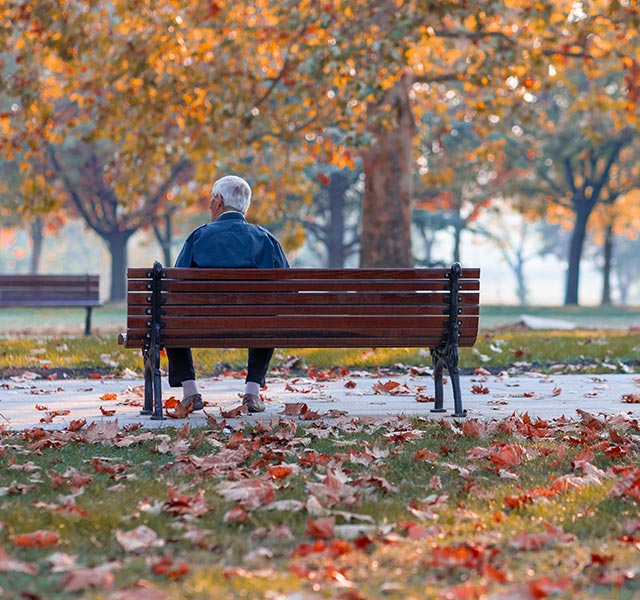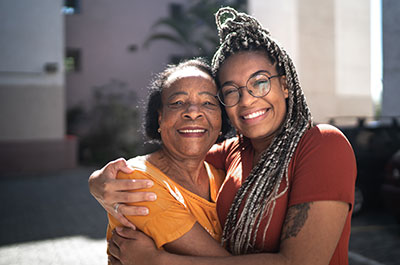When we think of healthy aging, we often think of diet, exercise and managing chronic conditions. But many people don’t know there’s another key aspect of health: social connections.
Research has shown that strong social relationships are linked to better physical health and a longer life. And research indicates that social isolation can harm your health as much as smoking 15 cigarettes a day. Let’s explore why seniors may experience a lack of connection and how to combat this health risk.
How Social Connections Benefit Health
It’s easy to assume that connecting with others is a fun—but optional—part of life. However, research has shown that social connections are essential to human health.
How do you know if you have social connections? Being socially connected means you have meaningful relationships with others. You receive the care and support you need and have regular, positive interactions with friends or family members.
Numerous studies have found that people with healthy social connections have:
- Better cognitive (thinking) abilities
- Faster recovery after falls and injuries
- Healthier eating and sleeping habits
- Lower blood pressure
- Lower risk of chronic diseases like diabetes and heart disease
- Reduced risk of mental health conditions like depression and anxiety
- Stronger immune systems, preventing illnesses and infections
Why Older Adults Experience Social Isolation
A report from the National Academies of Sciences, Engineering, and Medicine found that 1 in 4 adults over age 65 is socially isolated. Older adults face unique challenges that can make it difficult to leave home and connect with others, including:
- Chronic health issues: Many health conditions can make a person feel unwell, leaving them less likely to participate in activities.
- Cognitive decline and forgetfulness: People may have trouble making plans or connecting with others if they have dementia or memory problems.
- Death of family members and friends: Losing loved ones can be devastating. It can feel difficult to connect with new people after a loss.
- Financial instability: Many older adults are on a fixed income. A lack of finances means a person may be unable to pay for gas or other expenses associated with going out.
- Hearing problems: Hearing loss is common as we age, and it can lead to cognitive decline and a lack of interest in talking with others.
- Lack of transportation: Some older adults don’t own a vehicle or have a driver’s license, so they must rely on others to drive them to activities.
- Less mobility: Arthritis, osteoporosis and other conditions can make it difficult or painful to be active.
- Mental health conditions: Anxiety and depression affect many older adults, and these conditions can interfere with the ability to be social.
- Technology barriers: Some older adults may not know how to text, use social media or connect in ways that younger people use every day.
How Providers Can Address Social Isolation

Primary Care At Henry Ford
Many older adults see their healthcare providers regularly for checkups, chronic condition management or sick visits. Sometimes, these appointments are the only face-to-face meetings an older adult may have. These interactions are a prime opportunity to identify and address loneliness and social isolation because providers can:
- Discuss the importance of social connections and how they benefit health
- Empower and encourage patients by sharing community resources and opportunities to connect
- Treat or manage physical or mental health issues that may be contributing to isolation
- Use a loneliness or social isolation scale to screen for social isolation to identify at-risk patients
How To Connect With Others When You Feel Isolated
If you are struggling with social isolation, you’re not alone. Many people have been in your shoes—and many have found ways to connect and feel happier and healthier.
It can be hard to put yourself out there in social situations, especially at first. But even a small step in the right direction is progress.
Ideas to help you find social connections include:
- Clubs and organizations: Religious organizations, book clubs, chess clubs and garden clubs are examples of groups that may offer free, fun social opportunities.
- Community events: A community park clean-up, a parade or a concert can help you meet some friendly faces.
- Senior centers: Many communities have senior centers that host games and activities geared toward older adults. They may also offer transportation.
- Volunteering: Find out which local charities could use volunteers, and share your time and talents. Being part of a good cause can help you feel connected, and you may make new friends, too.
If you need more social connections, don’t wait to ask for help. Make an appointment with your healthcare provider—and if you feel ready, try a community activity. You deserve to have connections with others, and with your provider’s help, you can get there.
Dr. M. Elizabeth Swenor leads the functional and lifestyle medicine team at Henry Ford Health. She sees patients at Henry Ford Medical Center in Bloomfield Township. Learn more about Dr. Swenor and read her articles here.



